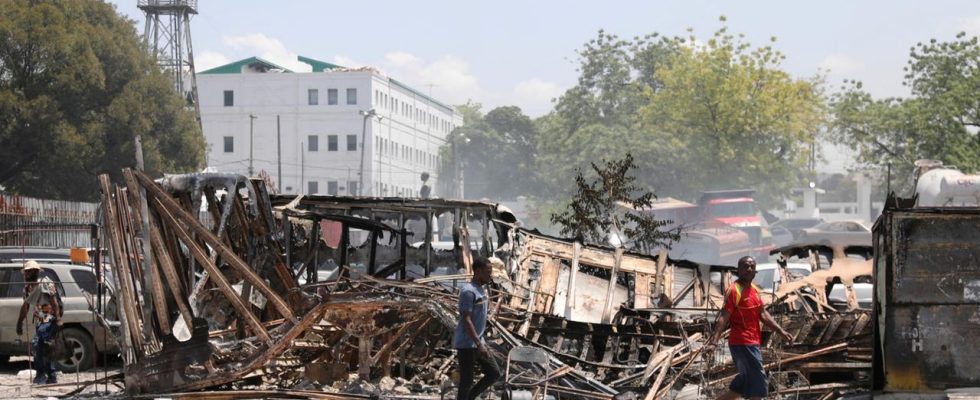There has been a state of emergency in Haiti since the end of February: gangs control large parts of the country and around 80 percent of the capital Port-au-Prince. A transitional council is now supposed to bring order and organize the first elections in years.
An interim presidential council has been created in Haiti as a first step toward restoring security in the gang-ravaged Caribbean nation. A corresponding decree appeared in the official gazette “Le Moniteur” on Friday. The council is expected to appoint a new interim government and pave the way for Haiti’s first elections since 2016.
This was announced a month earlier after a meeting of the Caribbean Community Caricom in Jamaica. US Secretary of State Antony Blinken also took part. Interim Prime Minister Ariel Henry, who did not return from a trip abroad at the end of February because of the security situation in Haiti, said he would resign if the Council stood. This will consist of nine representatives from various parties, civil society groups and business – seven of whom are entitled to vote and two of whom have observer status.
But it is unclear whether the interim council will be able to assert its authority over the gangs that control about 80 percent of the capital, Port-au-Prince.
More than 1,500 dead, 95,000 displaced
The violence escalated again during Henry’s trip abroad at the end of February. Police stations, government facilities and other buildings were attacked and thousands of prisoners were freed from prisons. According to a report by the UN Human Rights Office (as of the end of March), more than 1,500 people have been killed. The number of kidnappings and rapes has also increased, it said.
According to the International Organization for Migration (IOM), around 95,000 people were expelled from the greater Port-au-Prince area within a month. The existing hunger crisis has worsened and the humanitarian situation is dramatic.
Henry took over the reins of government shortly after the assassination of President Jovenel Moïse in July 2021. The office of president and thus head of state has not yet been filled, and there is no longer a parliament. A multinational security mission approved by the UN Security Council in October to support the Haitian police against the gangs has not yet materialized.
The official formation of the Transitional Council generated positive reactions. The Caribbean alliance Caricom, which has played an important role in the transitional council, said this shows “the possibility of a new beginning for Haiti.” A US State Department spokesman said “these developments are a positive step toward restoring security, paving the way for free and fair elections, and restoring democracy and inclusive governance in Haiti.”
The UN office in Haiti said it would continue to closely monitor the political process on the ground. “International support for the Haitian police to restore security and the rule of law” remains “essential”.

